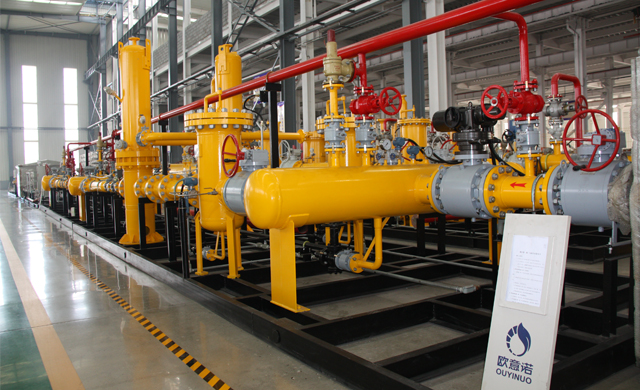
Dec . 25, 2024 07:29
Back to list
Understanding Gas Filter Mechanisms and Their Applications in Industry
Understanding Gas Filters A Comprehensive Overview
In modern industrial applications, the demand for clean air and efficient gas management has never been more critical. One of the key technologies that address this need is the gas filter. Gas filters play a crucial role in ensuring the safety and efficiency of various processes across multiple sectors, including manufacturing, pharmaceuticals, and environmental engineering. This article delves into the fundamentals of gas filters, their types, applications, and significance in today's world.
What is a Gas Filter?
A gas filter is a device designed to remove contaminants, particulates, and harmful substances from gas streams. These pollutants can include dust, aerosols, liquid droplets, and volatile organic compounds (VOCs). By facilitating the purification of gases, gas filters help improve air quality and protect both human health and the environment.
Types of Gas Filters
Gas filters come in several types, each tailored for specific applications and technologies
1. HEPA Filters High-Efficiency Particulate Air (HEPA) filters are capable of trapping 99.97% of particles that are 0.3 microns in size. These filters are often used in cleanrooms, laboratories, and hospitals to ensure the highest air quality standards.
2. Activated Carbon Filters These filters utilize activated carbon to adsorb gases and odor molecules. They are widely employed in air purifiers and environmental systems to remove volatile organic compounds and other harmful gases.
3. Electrostatic Filters By employing an electrical charge, these filters capture particles without relying solely on traditional filtration methods. This makes them particularly effective in capturing smaller particulates.
4. Mechanical Filters These utilize physical barriers, such as mesh or foam, to trap larger particles from gas streams. They are often used in pre-filtration stages before more refined filters.
5. Chemical Filters Designed for specific chemical contaminants, these filters use reactive materials to neutralize harmful gases. For instance, they are commonly found in industrial applications dealing with hazardous substances.
Applications of Gas Filters
gas filter

The applications of gas filters are vast and varied, spanning numerous industries. Some notable examples include
- Industrial Manufacturing Many manufacturing processes emit gases and vapors that can be detrimental to worker health and the environment. Gas filters help capture harmful emissions before they are released into the atmosphere.
- Pharmaceuticals and Biotechnology In industries where sterile conditions are paramount, such as pharmaceuticals, gas filters (particularly HEPA filters) ensure that air quality meets stringent standards for cleanliness.
- Waste Treatment Gas filters play an essential role in waste management facilities. They are vital in capturing harmful emissions generated during waste processing and incineration.
- Chemical Processing In chemical manufacturing, controlling volatile emissions is critical. Specialized gas filters are used to reduce the release of hazardous and malodorous gases into the environment.
Importance of Gas Filters
The significance of gas filters extends beyond mere compliance with regulations. They play a key role in
- Health Protection By filtering out harmful gases, these systems safeguard the health of workers and the general public from air pollution and respiratory ailments.
- Environmental Safety Gas filters contribute to reducing the carbon footprint and mitigating the impact of industrial processes on climate change. By capturing and neutralizing harmful gases, they play a part in promoting sustainable practices.
- Operational Efficiency For many industries, maintaining air quality is critical for optimal operations. Gas filters help enhance the overall efficiency of equipment and systems, reducing wear and tear and associated downtime.
Conclusion
In conclusion, gas filters are indispensable tools in the modern industrial landscape. With their ability to remove harmful contaminants from gas streams, they protect human health, ensure compliance with environmental regulations, and promote operational efficiency across various sectors. As technology continues to evolve, the role of gas filters will undoubtedly expand, paving the way for cleaner, safer, and more sustainable industrial practices. The ongoing innovation within this field reaffirms our commitment to preserving air quality and protecting the planet for future generations.
Latest news
-
Safety Valve Spring-Loaded Design Overpressure ProtectionNewsJul.25,2025
-
Precision Voltage Regulator AC5 Accuracy Grade PerformanceNewsJul.25,2025
-
Natural Gas Pressure Regulating Skid Industrial Pipeline ApplicationsNewsJul.25,2025
-
Natural Gas Filter Stainless Steel Mesh Element DesignNewsJul.25,2025
-
Gas Pressure Regulator Valve Direct-Acting Spring-Loaded DesignNewsJul.25,2025
-
Decompression Equipment Multi-Stage Heat Exchange System DesignNewsJul.25,2025

